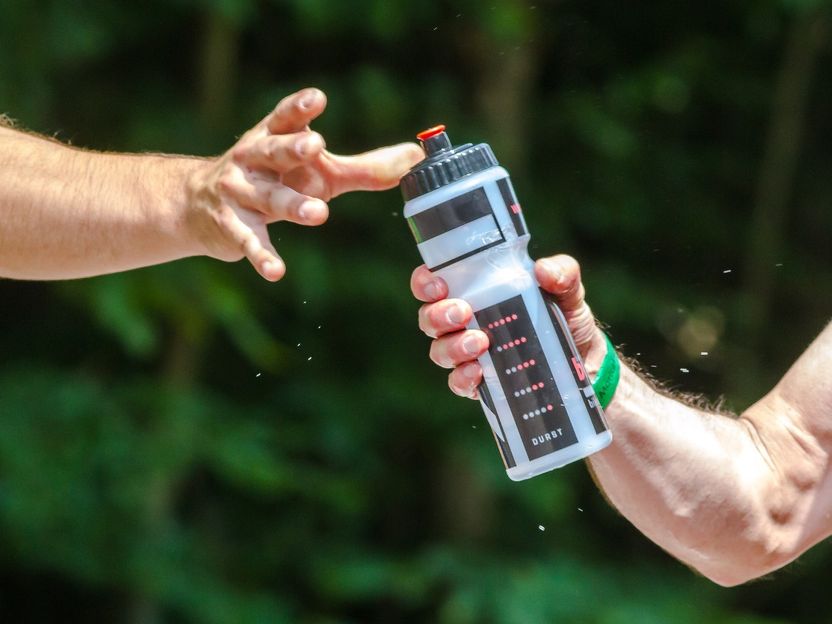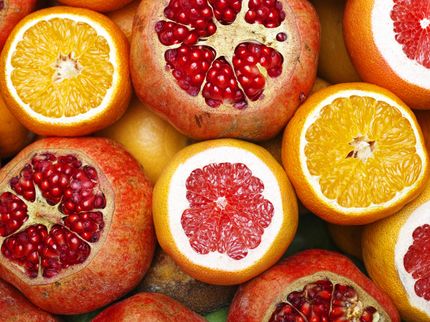More than just a sports drink - positioning functional water as an energizer
Advertisement
Whether for learning or gaming - energy drinks like Monster, Red Bull & Co promise more concentration, more performance, more endurance. However, these stimulants have fallen into disrepute in recent years: A large proportion of energy drinks contain excessive amounts of sugar and additives, which - when drunk in large quantities - can even have a harmful effect on health. High time for something new!

Bild von Jana Wersch auf Pixabay
Functional water is already gaining ground as a healthy alternative to sweet wake-up drinks. The new Mintel Germany Report shows: In Germany, a quarter of consumers (25 percent) agree that bottled water with energy-boosting additives is more appealing than energy drinks. We show two ways to position functional water.
Water with electrolytes: Even for sports fans
Water with electrolytes has been marketed primarily to athletes, and the number of product launches has been very small. Yet there is no reason not to make this valuable helper available to a broader target group. After all, water and the electrolytes that can be dissolved in it are crucial for mental and physical performance. Electrolyte water is particularly popular with younger consumers: Those under 35 are the most likely to be willing to pay more for it. 34 percent of this age group also believe that mineral water with added electrolytes offers more health benefits than regular mineral water.
The Path brand shows the way: Visually alone, the sleek, elegant bottle is different from the neon-heavy presentation of classic sports drinks, such as Powerade and Gatorade. The only sales hurdle remains taste: 39 percent of bottled water users are concerned that water with added electrolytes doesn't taste good. There are opportunities here, particularly in combination with fruity flavors.
Trend in the USA: Alkaline water
Alkaline water is all the rage in the USA right now. A high pH value is said to help neutralize the body in cases of hyperacidity or to keep the acid-base balance stable as a preventive measure. Even though the health effects are still being debated, alkaline water is already one of the fastest growing segments of the US water market. Nestlé's purchase of Essentia Water shows that the industry has confidence in the segment. After all, the function of alkaline water is easy to explain, and alkaline water also has a convincing taste. Of the 15 percent of adults in the U.S. who drink alkaline water (24 percent of 18- to 44-year-olds), 51 percent do so because it tastes better, and 41 percent because it has a hydrating effect.
In Germany, the trend has not quite caught on yet. When asked about alkaline water, it becomes apparent that the younger generation in particular can be a target group. 26 percent of GenZ and 25 percent of Millennials agree that alkaline water hydrates the body better than normal bottled water. Approval is particularly high among young men - a target group that is engaged with functional beverages and has potential to become repeat purchasers.
The Mintel report on bottled water shows: The water market can do even more. The demand for alternatives to energy drinks is there, even among the younger generation. However, there is still room for improvement here and there in terms of packaging design, ingredients and taste. This should be easier for well-known beverage manufacturers than for young start-ups: 57 percent of Germans who have already consumed functional or fortified products trust foods and beverages from established brands more than those from less well-known brands.
Note: This article has been translated using a computer system without human intervention. LUMITOS offers these automatic translations to present a wider range of current news. Since this article has been translated with automatic translation, it is possible that it contains errors in vocabulary, syntax or grammar. The original article in German can be found here.































































